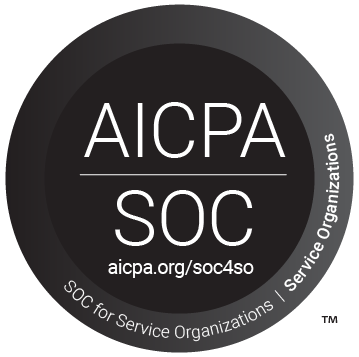Advancing principles for value in addressing inflammatory bowel disease As the Center for Medicare and Medicaid Innovation (CMMI) continues to advance value-based payment (VBP) models to address quality and total cost of care in primary care and large-scale populations, many stakeholders are grappling with how to build VBP models for chronic specialty and subspecialty conditions for smaller populations, such as inflammatory bowel disease (IBD).1 Some believe that VBP models have the potential to improve patient and cost related outcomes in IBD, and while some commercial payers and practice partners are experimenting with such models, most of these efforts remain nascent.
Beginning in 2021, Tapestry Networks engaged a diverse group of stakeholders—including payers, self-insured employers, gastroenterologists and clinical specialists, patient advocacy organizations, industry representatives, and others—in its IBD Shared Value Initiative to address the challenges and opportunities surrounding value-based care (VBC)2 and VBP models in IBD. The initiative culminated in the May 2021 Progress Summit. 3 Following the summit, many stakeholders noted that establishing consensus-based principles for value in IBD could help guide those looking to pilot new approaches. Therefore, throughout 2021 and early 2022, Tapestry continued discussions with key stakeholders to consider what those principles might be. From this broader group, a small subset of payers and providers, chosen for their roles and leadership in care delivery and contracting, collaborated to draft a publication on the topic. In June 2022, the draft framework publication was presented to the larger stakeholder group for further insights. Meeting participants also discussed considerations for practical implementation of the framework, including the incentives and resources necessary to advance the principles proposed in the draft. The meeting also provided a forum for candid discussion among stakeholders for continuous learning, and more such meetings may be convened in the future.
For more information, contact T. J. Tedesco at [email protected]
The original PDF can be found at: https://viviohealth.com/inflammatory-bowel-disease-shared-value-initiative/
Learning Objectives:
- Kevin Knopf, MD, VIVIO Director of Clinical Innovation is on this panel on the current state of affairs for the global and US oncology biosimilar market.
- Identify existing and/or anticipated barriers to adoption of biosimilars from various stakeholders
(payor, provider, c-suite, community) - Discuss strategies and best practice solutions to help optimize biosimilar adoption
- Describe current and future policies or regulations impacting biosimilar ecosystem
Strategies for Overcoming Existing or Anticipated Barriers
Panel Discussion:
• Academic Health System Perspective
• Community Cancer Center Perspective
• Payer Perspective
Panelists: Kevin Knopf, MD, Kathy Oubre, MS, Desiree Otenti, MNS
CHG Healthcare and VIVIO Health Inc tackle the perfect storm of challenges when it comes to specialty pharmacy: out-of-control costs, lack of clinical evidence, and limited use of outcomes data.
Back in 2016, benefits staff at CHG Healthcare found a $174K charge in the monthly claims spend report. It wasn’t a mistake; it was the actual price for a specialty drug being used to treat a rare medical condition. Forecasting further costs without evidence of effectiveness, CHG Healthcare partnered with VIVIO Health Inc. to implement a specialty drug carve-out plan that covers both pharmacy and medical benefit drugs. Since 2017, CHG Healthcare has saved a net $4.4M through the program even with zero out-of-pocket costs for plan participants paying for specialty medications. Hear directly from Anne Hopkins, Director of Benefits and Wellness at CHG Healthcare, and Pramod John, CEO & Founder of VIVIO Health Inc., on how a focus on outcomes and individualized care can lead to savings.
Cutting Costs: CHG Healthcare Carves Out Specialty Pharmacy – Catalyst for Payment Reform (catalyze.org)
This episode of The ShiftShapers Podcast is called “Target and Tame the Drug Spend Monster” with Pramod John, Founder and CEO at VIVIO Health. They discuss the changing nature of specialty drugs as adjuvant therapies and the skyrocketing costs that come with it.
What You’ll Learn From this Episode:
03:31 Growth of specialty drugs & adjuvant therapies
06:16 TNF inhibitors, Humira biosims & AbbVie’s threat to litigate
13:25 Why do Americans pay more for specialty drugs?
19:29 Standing up against unfair pricing
Ep #317: Target and Tame the Drug Spend Monster – With Pramod John – ShiftShapers Online
In recent years, Dean Foods has been besieged by surging healthcare costs, with specialty drugs being a key cost driver. Not having expert knowledge about specialty drugs, the company, in some cases, had been unknowingly paying for the inappropriate utilization of these types of products. Rather than hoping its participation in a pharmacy benefit collective would throttle its rapidly increasing specialty spend, Dean Foods took the bull by the horns and chose to better manage and achieve higher value from this healthcare category.
CLICK to read:
https://www.viviohealth.com/wp-content/uploads/2020/08/VIVIO-Biosimilars-Case-Study-202008.pdf
What is causing prescription drug costs to keep rising? Come find out in this podcast in which Pramod John, the CEO of VIVIOHealth, starts talking at around 36:50 in the program.
https://www.commonwealthclub.org/events/archive/podcast/secret-behind-high-drug-costs

